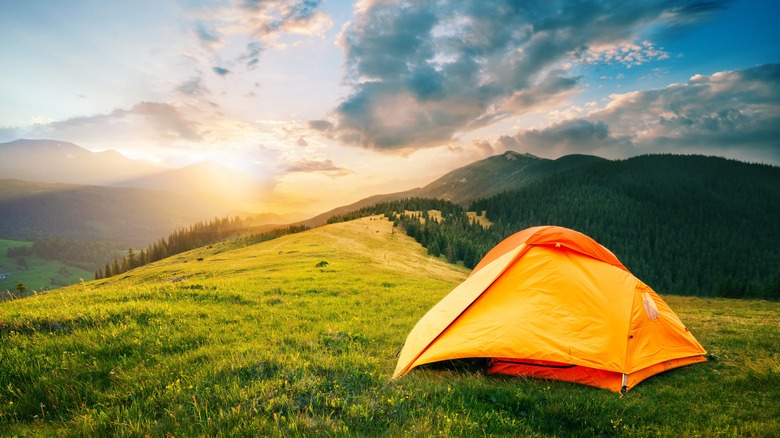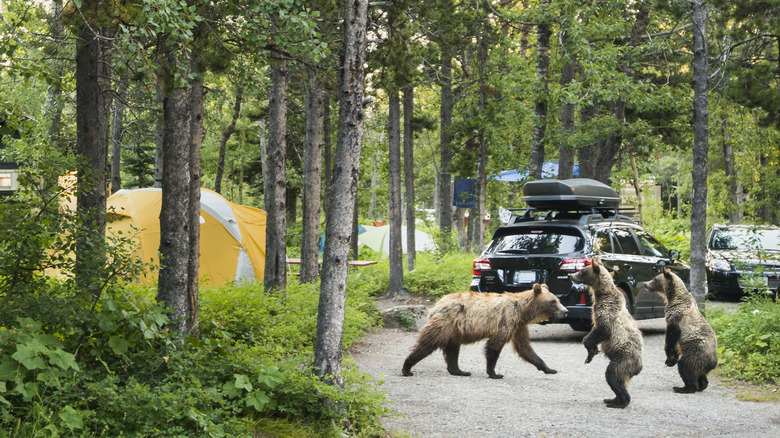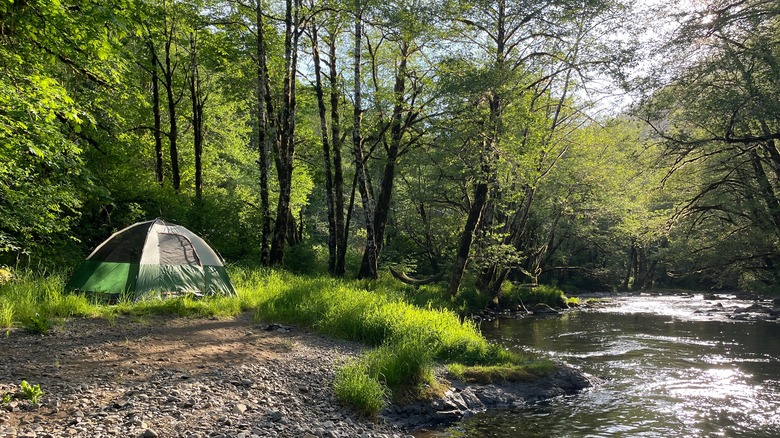Why You Should Avoid Using A Bright-Colored Tent During Your Next Camping Trip
When it comes to camping, tents are essential as shelter for yourself and your gear. Choosing the right tent can be a confusing process. For starters, there are a myriad of sizes and designs. Which you choose will often depend on whether you are camping alone, with a partner, or in a group. Additional consideration should be given to how you are entering the campsite –- hike-in or drive-in. Time of year, ease of setup, and the amount of gear you carry are other factors that can impact your choice.
What is often an afterthought is the color of the tent. However, choosing the best color tent for camping is actually an important decision. Despite what many think, the color choice goes beyond just individual style. There are actual functional considerations when it comes to tent color. Additionally, while some may gravitate towards a bright-colored tent because it stands out and is easier to find, there are disadvantages to that as well. With that in mind, there are a handful of reasons why you should avoid using a bright-colored tent during your next camping trip.
Bright-colored tents attract bugs and bears
Bugs are a common nuisance during any time spent outdoors, but especially when camping. If you are looking for ways to keep bugs out of your tent while camping, you might want to start with the color of your tent. Bright-colored tents can attract various bugs and insects, which can offset or minimize the effectiveness of insect deterrents to give you a bug-free camping experience. Conversely, other common tent colors such as greens and blues do not register in bugs' vision and have even proven effective to repel some stinging insects such as wasps and bees.
While insects buzzing around your tent may be annoying, a bigger issue than bugs, quite literally, is bears. Like insects, bears have shown to be attracted by brightly-colored tents. Yellow tents, in particular, seem to catch the attention of nearby bears. While campers often make mistakes that attract bears to their campsites, pitching a brightly-colored tent may be their first misstep when it comes to avoiding bear encounters. It is widely assumed that bears associate these bright colors with humans and thus their camping food supply. So, choosing a muted green or camouflage tent that will blend into the surroundings is one way to help avoid getting the attention of passerby bears.
Other reasons to avoid using bright-colored tents when camping
Brightly-colored tents tend to attract not only the attention of bears, but also other large mammals, such as humans. Standing out may be a good thing if you are camping in a sea of tents at, say, a concert venue, but when isolated in the woods, it is not nearly as beneficial. In fact, it can be downright dangerous as it is suggested brightly-colored tents in the wilderness often catch the attention of people with bad intentions, such as robbers and thieves. Choosing more natural or muted tent colors can help campers obscure their campsites from unwanted attention.
One additional argument against bright-colored tents is aesthetic. While there are those that enjoy seeing the contrast of a bright tent against the natural landscape, many others consider these colors garish visual pollution. Given that many campers enjoy spending time outdoors specifically to enjoy the natural beauty of their surroundings, choosing a tent of muted colors such as greens and browns will allow the campsite to blend rather than overpower the landscape.


